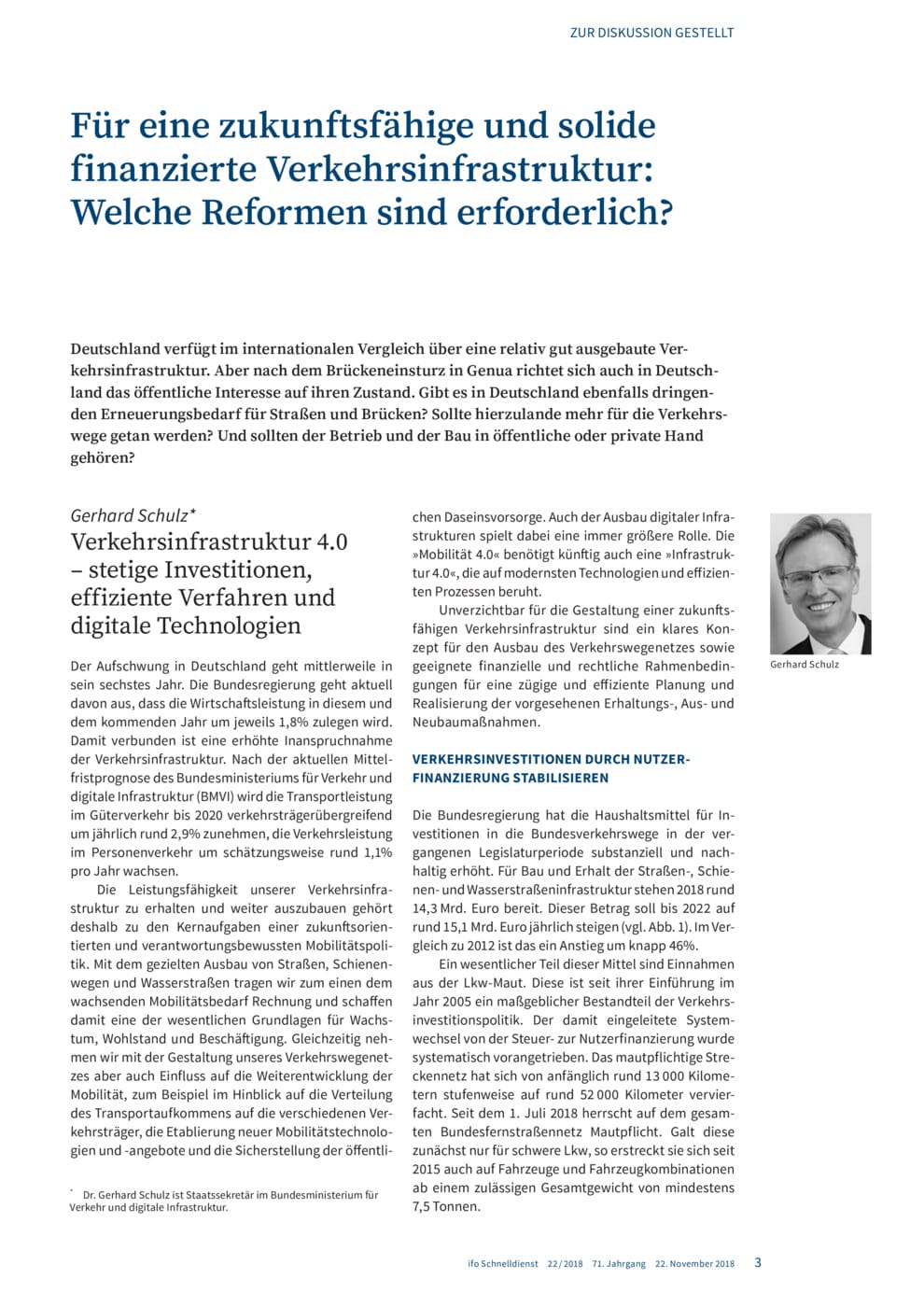What Reforms Are Needed for a Sustainable and Soundly-Financed Transport Infrastructure
ifo Institut, München, 2018
ifo Schnelldienst, 2018, 71, Nr. 22, 03-22

Germany has a relatively well-developed transport infrastructure by international comparison. But the recent collapse of a bridge in Genoa, has also focused public interest in Germany on its condition. Is there also an urgent need for the renewal of roads and bridges in Germany? Should more be done in Germany to maintain transport routes? Gerhard Schulz, Federal Ministry of Transport and Digital Infrastructure, presents the German federal government's measures. Among other things, the financing, planning, construction, operation and maintenance of federal trunk roads are to be more closely interlinked in the future, while Germany’s rail infrastructure expanded and the planning and approval procedures accelerated. Philipp Jäger and Torsten Schmidt, RWI - Leibniz Institute for Economic Research, Essen, assume that demographic change will curb the increase in traffic volume, but that no decline is to be expected. From this perspective, they believe that the favourable current financial situation of public budgets should be used to repair the transport infrastructure. According to Erik Gawel, Helmholtz Centre for Environmental Research - UFZ, Leipzig, sustainable transport infrastructure financing must above all make it possible to maintain and restructure the transport infrastructure. Higher levels of user financing, such as distance-based tolls for passenger cars, could provide the additional funds needed to maintain road traffic infrastructure. In addition to the capacity shortage, Thomas Puls, Institut der deutschen Wirtschaft, Cologne, sees a "maintenance crisis", which is leading to traffic restrictions and is being exacerbated by protracted administrative procedures. First of all, real growth in investment lines must be secured. The development of a German federal infrastructure company will also play a key role, as it will place financing and the use of funds into one hand in the future. Gernot Sieg, University of Münster, and Berthold U. Wigger, Karlsruhe Institute of Technology, argue that transport infrastructure should continue to be supplied via so-called "Public Private Partnerships" (PPPs) in the future. Although PPPs are not a panacea for the provision of infrastructure, this option does offer some advantages, especially in the motorway sector. According to Alexander Eisenkopf, Zeppelin University Friedrichshafen, the financing of transport infrastructure should be decoupled from budget cycles as far as possible and additional sources of income should be tapped from so-called user financing.